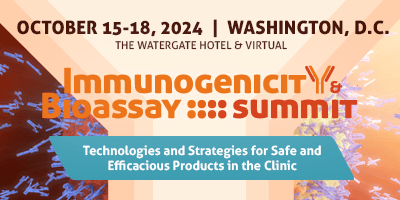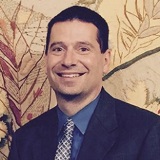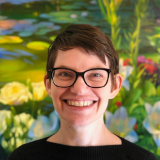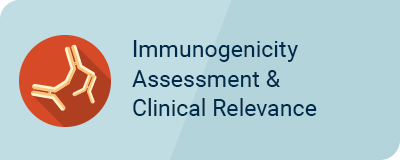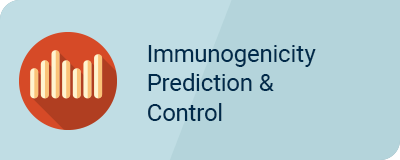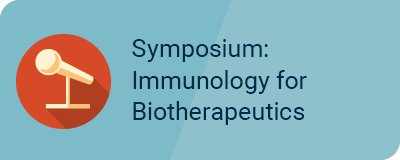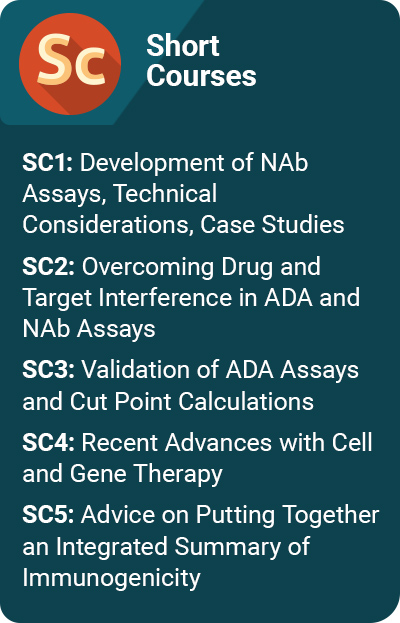講演者情報
Filter by:
Ben Afzali, MD, PhD, FRCP, Earl Stadtman Investigator, Immunoregulation Section, Kidney Diseases Branch, NIDDK, NIH
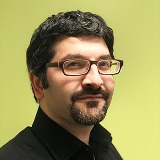
Ben Afzali is an Earl Stadtman investigator at the National Institute of Diabetes and Digestive and Kidney Diseases (NIDDK) of the National Institutes of Health (NIH). He studied medicine at Guy’s and St Thomas’ hospitals, in the United Kingdom, and completed residency training in internal medicine at Oxford. He specialized in renal medicine, became an honorary consultant nephrologist at Guy’s Hospital, and earned a Ph.D. in immunoregulation from King’s College London. His research focuses on tissue immunoregulation, exploring how environmental signals in tissues are integrated by transcription factors to direct autoimmunity, tissue injury, and wound healing.
Kavitha Akula, PhD, Principal Scientist, Bristol Myers Squibb Co.
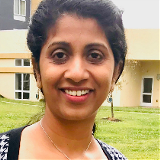
Dr. Kavitha Akula is currently a Principal Scientist at Bristol-Myers Squibb (BMS) in the Non-clinical Disposition and Bioanalysis Group. Kavitha joined BMS in 2019 as Research Investigator-II with about five years of experience in regulated bioanalysis from different contract research organizations (CRO). She received her PhD from Temple University, Philadelphia in Organic Chemistry in 2017. Kavitha has extensive experience in regulate bioanalysis of large molecule drugs and new treatment modalities in support of PK and Immunogenicity. She recently took co-lead position in the Early Career Bioanalytical Scientists (ECBS) sub-team in AAPS.
Bianca Bautista, PhD, Senior Scientist, Clinical Immunology, Amgen, Inc.

Bianca Bautista is a Principal Scientist in the Clinical Immunology Department at Amgen working on the development of assays to inform on immunogenicity risk. She also serves as Clinical Immunology lead on clinical programs in several therapeutic areas including Oncology and Inflammation. Prior to joining Amgen, she worked at GlaxoSmithKline (GSK) and Jounce Therapeutics as a program team lead in immuno-oncology. Bianca received her PhD in Immunology and Virology at University of Massachusetts Medical School where she studied CD4 T cell memory formation following influenza infection.
Sojin Bing, PhD, Staff Fellow, Office of Tissues & Advanced Therapies, FDA CBER
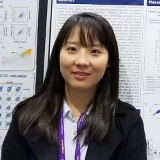
Sojin Bing is a staff fellow (Researcher and CMC reviewer) at the US Food and Drug Administration. Her research interests lie in the immunogenicity of adeno-associated virus vectors. Prior to joining the FDA, she served as a research fellow and postdoctoral fellow at the National Institutes of Health (NIH), where she focused on the immunological mechanisms of autoimmune diseases in the eyes. Sojin earned her PhD in Immunology and Veterinary Medicine from Jeju National University in South Korea, where her research centered on understanding natural killer cells (NK) in CNS autoimmune diseases and developing radio-protective agents against radiation exposure damage.
Diana Colleluori, PhD, MBA, Principal CMC Consultant, CMC Analytical, Biologics Consulting Group

Diana M. Colleluori, PhD, MBA is an Accomplished Executive Leader with 20 years of domestic and global experience in analytical methods, quality control, CMC regulatory affairs, and strategic planning in both start-up and growth organizations focused on biotechnology products, including cell and gene therapy products. Key technical experience includes potency assays, release and characterization assays, stability, specifications, and raw materials. Previous head of Quality Control for several innovator companies including Iovance Biotherapeutics, bluebird bio, and Merck. PhD in Biochemistry from Temple University School of Medicine and MBA in Pharmaceutical and Healthcare Business from the University of the Sciences in Philadelphia.
Daron Forman, PhD, Senior Principal Scientist, Discovery Biotherapeutics, Bristol Myers Squibb Co.

Daron has been at Bristol-Myers Squibb for 10 years focusing on both in silico and in vitro pre-clinical immunogenicity risk assessment and mitigation. He received his PhD training at the University of Massachusetts in Worcester and conducted his post-doctoral studies at Massachusetts General Hospital. Prior to BMS, he worked on understanding mechanism of action of several immune-modulating biologics including anti-CD3 and anti-GITR mAbs.
Andrew Graves, Director, Immunogenicity Assessment, Specialty Analytics, Teva Pharmaceuticals

Andrew Graves serves as the Director of Immunogenicity Assessment for Teva Pharmaceuticals. In his role, Andrew leads a talented group of immunologists supporting innovative and generic pharmaceutical candidate programs, spanning nonclinical in vivo studies, human clinical studies, and in vitro immunogenicity prediction studies. Andrew specializes in the development and validation of complex immunoassays. Before joining Teva in 2021, Andrew’s scientific career began at Aeras, where he led assay development activities supporting clinical vaccine studies. He then moved to FlowMetric, where he served as Associate Director of Lab Operations. Andrew holds a BS degree in biotechnology from the Rochester Institute of Technology, an MS in immunology from the University of Rochester, and earned his Specialist in Cytometry certification in 2016.
Michele Gunsior, PhD, Senior Director, Astria Therapeutics

Dr. Gunsior is Senior Director and Head of Translational Sciences at Astria Therapeutics, responsible for delivering translational medicine and bioanalytical objectives to support all stages of a therapeutic drug program. Prior to joining Astria, Dr. Gunsior was in the TS/TM group at Viela Bio (acquired by Horizon Therapeutics) overseeing clinical and nonclinical bioanalytical work, managing toxicology studies, and incorporating TM objectives into clinical studies. She joined Viela Bio from AstraZeneca/MedImmune, first beginning her career in the pharmaceutical/biotech industry at Covance Laboratories (now Labcorp). Dr. Gunsior served as the first Chair of the Women in Pharmaceutical Sciences Community within AAPS, is currently leading the ADA Clinical Relevance sub-team, and is a member of the extended Biomarker and Precision Medicine Community Leadership Team within AAPS.
Kevin Gurney, PhD, Distinguished Scientist, Analytical Research and Development, Merck

Dr Gurney earned his Ph.D. in Microbiology and Immunology from the University of California, Los Angeles in 2002, studying HIV-1pathogenesis in the thymus followed by his postdoctoral fellowship at UCLA as well studying HIV-1 interaction in with myeloid cells in the gut mucosa support by the NRSA Ruth L Kirschstein Award. In 2004, Dr. Gurney began his BioPharma journey in Discovery Immunology at Genentech, Inc. where he developed monoclonal antibodies/fusion protein drug candidates targeting myeloid cells for application in models arthritis and cancer models. In 2009, he moved to Merck for biosimilar drug development and two years later transitioned to the Bioprocess organization developing potency assays supporting clinical stage pipeline projects including Keytruda. During this time, Dr Gurney took on increasing management roles and project leadership supporting the Biologics and Vaccines pipeline. In 2021, Dr. Gurney moved a VP role at Thunder Biotech in developing CAR-Macrophage technology, but returned to Merck in 2022 in his current role as Distinguished Scientist in the Cell Based Sciences organization. In this capacity, Dr. Gurney helps direct scientific strategy for elucidating structure function relationships of our clinical stage products, for establishing our analytical control strategy for critical quality attributes in relation to potency, safety, and immunogenicity, and for characterizing the various biological activities of our pipeline products.
Robert Hamilton, PhD, D.ABMLI, Professor, Medicine & Pathology, Clinical Immunology & Allergy, Johns Hopkins University
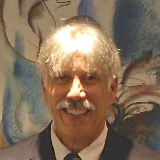
Robert G. Hamilton, Ph.D., D.ABMLI is a professor of medicine and pathology and Director of the Dermatology, Allergy, and Clinical Immunology Reference Laboratory at the Johns Hopkins University School of Medicine. He teaches, performs research, and directs a federally licensed clinical immunology laboratory that specializes in the diagnosis of Type-1 hypersensitivity reactions in humans. Over the past 38 years at Johns Hopkins, he has published over 250 peer-reviewed original papers and review articles and 36 chapters in textbooks on the topic of the diagnosis and management of human allergic disease. For the past 15 years, he has served as coordinator for the College of American Pathologist’s Diagnostic Allergy Inter-laboratory Proficiency Survey which monitors ~150 North American laboratories performing diagnostic allergy testing.
Timothy Hickling, PhD, Investigative and Immunosafety Chapter, Roche

Tim currently contributes to immunogenicity risk and mitigation strategies for large molecules at Roche, from early discovery projects to those in clinical development and post-marketing. During the last ten years he has contributed immunology expertise to the development of an in silico immunogenicity model, with the purpose of improving predictions of clinical immunogenicity for drug candidates. Tim previously worked on vaccine development and holds a PhD in Immunology from the University of Oxford.
Andreas Hollenstein, PhD, Principal Scientist, Immunosafety, Roche

Andreas holds an MS in Biochemistry/Molecular Biology and a PhD in (Radio) Oncology from ETH Zürich. He conducted his postdoctoral research in adoptive cell therapy at the Dutch Cancer Institute in the lab of Ton Schumacher. Subsequently, he focused on antibody discovery and lead optimization at Genmab NL. Since 2020, Andreas has served as a scientist in immunosafety at Roche in Basel.
Kristina Howard, Principal Investigator, Division of Applied Regulatory Science (DARS), CDER, FDA

Kristina Howard received her veterinary degree from the Virginia-Maryland Regional College of Veterinary Medicine and her Doctorate in immunology from North Carolina State University. She joined the FDA in 2010 and is currently a principal investigator in the Division of Applied Regulatory Science, Center for Drug Evaluation and Research of the United States Food and Drug Administration. Her research focuses on developing and improving in vitro and in vivo models to better predict the safety of small and large molecule drug products in humans.
Shannon Howell, PhD, Principal Scientist, Immunogenicity Bioanalytical, Amgen, Inc.

Dr. Shannon Howell received her PhD from the University of Southern California where she utilized mRNA display to discover peptides that modulate protein-protein interactions. Her post-doctoral fellowship at the University of Southern California was in collaboration with the Keck School of Medicine where she shifted her focus from basic biochemistry research to one with emphasis in bioengineering and translational medicine. She is currently a principal scientist with over 8 years of experience in the immunogenicity bioanalytical department at Amgen. She is responsible for the anti-drug antibody assessment for large-molecule biotherapeutics across all phases of development. Her main responsibility is leading the pre-existing reactivity assessments for late-phase drug candidates to contribute to the overall immunogenicity risk assessment for each program.
Jeffrey A. Hubbell, PhD, Eugene Bell Professor Tissue Engineering & Vice Dean, Molecular Engineering, University of Chicago

Jeffrey A. Hubbell is Eugene Bell Professor in Tissue Engineering at the Pritzker School of Molecular Engineering of the University of Chicago. He has been elected to the US National Academy of Engineering (2010), the National Academy of Medicine (2019), the National Academy of Sciences (2024) and the American Academy of Arts and Sciences (2021). Hubbell uses nanobiomaterials and protein engineering approaches to investigate topics in regenerative medicine and immunotherapeutics. In regenerative medicine, he focuses on biomaterial matrices that mimic the extracellular matrix and on growth factor - extracellular matrix interactions, working in a variety of animal models of regenerative medicine. In immunotherapeutics, he focuses on nanomaterials in vaccines that target lymphoid-resident antigen presenting cells and on inverse vaccines to induce tolerance in the contexts of autoimmunity, allergy, and of particular interest here protein drugs.
Susan Irvin, PhD, Senior Principal Scientist, Bioanalytical Strategy, Regeneron

Susan Irvin received her PhD from North Carolina State University, where she built a foundation in virology and molecular biology. Her postdoctoral fellowship at Albert Einstein College of Medicine also focused on virology with an emphasis on human health and immunology. In 2015, she brought her passion for infectious disease prevention and treatment to Regeneron. She is now a Staff Scientist in the Bioanalytical Strategy Group where she supports clinical studies in infectious disease and oncology from a bioanalytical perspective for PK, ADA, and NAb.
Andrew Isidoridy, Immunology Sales Specialist, ProImmune, Inc.
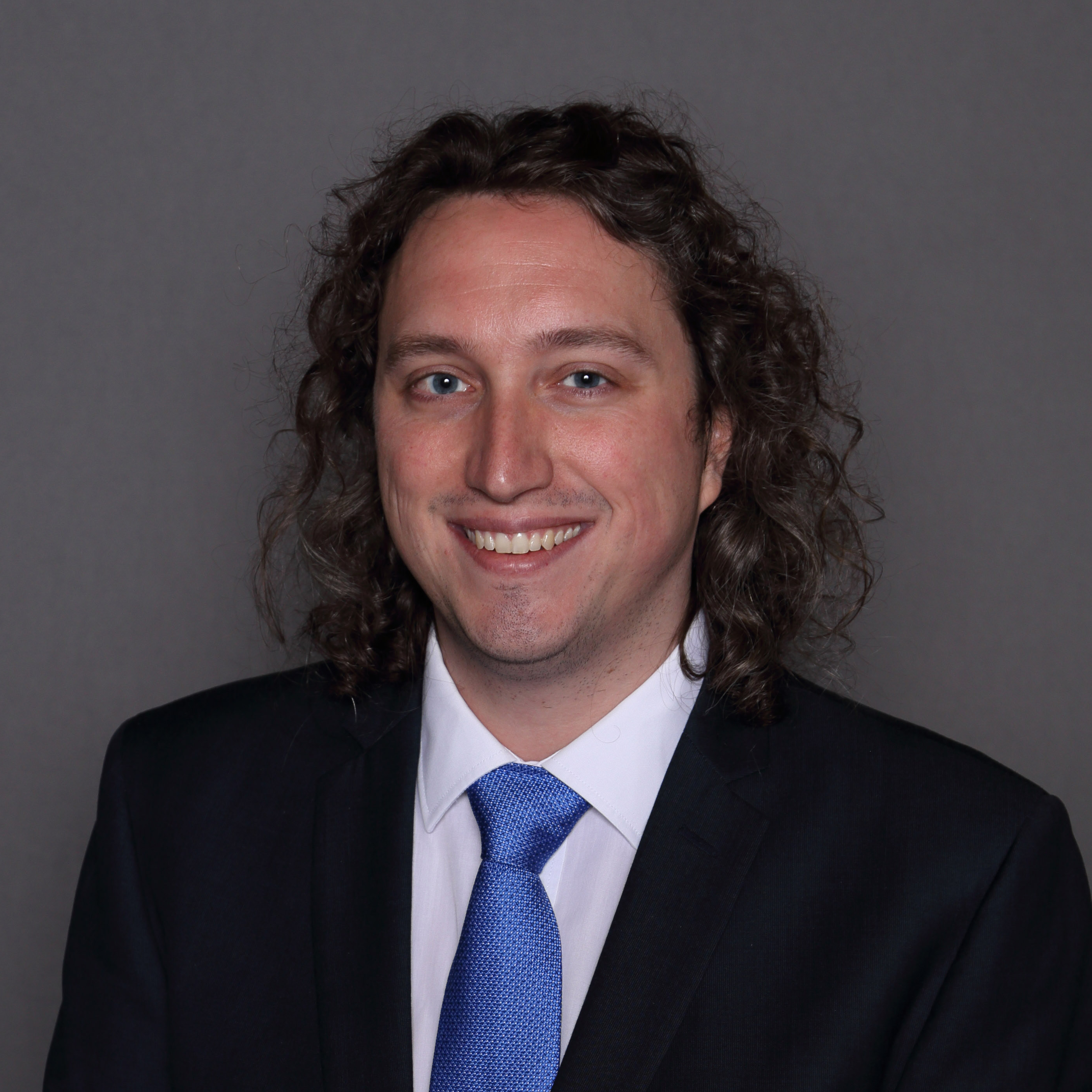
Andrew earned his PhD in molecular biology from the University at Albany under the direction of Professor Robert Osuna, identifying and characterizing post translational modifications of the transcription factor DksA in E. coli. He joined ProImmune in 2019 after completing his doctorate and currently works on providing innovative solutions for clients that deeply improve our understanding of both desired and unwanted immune responses.
Nicole Jarvi, PhD, Senior Scientist, Merck

Nicole Jarvi is a Senior Scientist at Merck in the Biologics Development & Biopharmaceutics group in Pharmaceutical Sciences and Clinical Supply (PSCS). She has an MS and PhD in Pharmaceutical Sciences from the University at Buffalo where she researched immunogenicity risk assessment methods and formulation mitigation strategies for subcutaneously administered biologics. She is an author on multiple publications about immunogenicity in Communications Medicine (a Nature journal), BioDrugs, and Journal of Pharmaceutical Sciences. Her research led to development of a mechanism-based immunogenicity risk assessment assay designed to capture dendritic cell migratory potential as a predictor of subcutaneous immunogenicity, the output of which informs formulation strategies and risk determination of product quality attributes.
Marisa Joubert, PhD, Scientific Director and Group Leader, Amgen

Marisa Joubert is a Scientific Director and Group Leader of the Attribute Impact Group in the department of Process Development at Amgen, Inc. (Thousand Oaks, CA). She has been at Amgen since 2008 as a pharmaceutical scientist in drug product development. Her group evaluates the impact of biotherapeutic attributes on the safety and efficacy of drug products. She is the Business Process Owner (BPO) of the Product Quality Attribute Assessment (PQAA) and co-BPO of the Quality Target Product Profile (QTPP) for all Amgen drug products. She is also the lead of the Biological Relevance of Attributes Team, a multi-department cross-functional working group that assesses the risk of immunogenicity of key product quality attributes. She has received several awards for this work including the Amgen Innovation Award (2021, 2019, 2018, 2012, 2011, 2010), Amgen Excellence in Operations Award (2022, 2018), and the 2015 Ebert Prize from the American Pharmacists Association. Prior to joining Amgen, she was a Senior Researcher at the Council for Scientific and Industrial Research in Pretoria, South Africa, where she evaluated novel therapeutic agents for treating HIV-1. She received her PhD from the University of California, Los Angeles, in Biochemistry and Molecular Biology.
Lynn Kamen, PhD, Scientific Officer, Executive Director, BioAgilytix

Lynn Kamen is a Scientific Officer at BioAgilytix. She earned her PhD in Immunology at the University of Michigan and completed a postdoctoral fellowship in immunology at the University of California, San Francisco. Lynn has over a decade of experience working in drug development, from early target discovery through clinical development for both large and small molecules at several companies including Portola Pharmaceuticals, and Alector. More recently, Lynn was a principal scientist at Genentech where she supported the in vitro biological characterization of large molecules and lead the development of immunogenicity assays including ADA, NAb and immunogenicity risk ranking assays. She is co-lead of the AAPS NAber working group and member of the AAPS NAb drug tolerance sub-team.
Alexander Kozhich, PhD, Director, Bristol Myers Squibb Co.
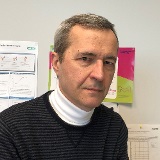
Alex Kozhich has over 20 years of experience in the pharmaceutical industry. For the past 13 years, Alex has worked at Bristol Myers Squibb, in the Nonclinical Disposition and Bioanalysis department, and currently is a Scientific Director with the responsibility of providing exploratory bioanalytical support to large molecule discovery and development projects. Previously, Alex was early discovery scientist at MedImmune and also worked at a couple of smaller diagnostic companies. He has authored over 100 papers and/or poster presentations as primary or co-author and presented at scientific conferences across the United States, and his research interests include bioanalytical methods for biomolecules, peptide and protein biochemistry, and immunology. Alex received his PhD in Organic Chemistry from Shemyakin Institute of Bioorganic Chemistry and completed postdoctoral training in immunology at National Institutes of Health.
Murli Krishna, PhD, Senior Principal Scientist, Bristol Myers Squibb Co.
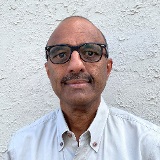
Murli Krishna is a Bioanalytical Scientist from Bristol-Myers Squibb (BMS) company where he currently oversees pharmacokinetic and immunogenicity assay method development, validation and conduct of sample analysis supporting regulated clinical and non-clinical studies. In addition, he provides functional area expertise on regulatory agency submissions ranging from IND to marketing approvals filings in support of several biotherapeutic programs at BMS. In his previous roles he has provided strategy and led efforts to custom-made critical reagent generation and characterizations where his work led to publication of a white paper and a patent for a novel reagent at BMS. His credentials include medical school training from India and doctorate from UC San Diego. He has over twenty years of experience from various pharma/biotech companies, during which time he has also been an active member of AAPS focus groups, with presentations at meetings and been a recipient of an external award.
Daniel LaGasse, PhD, Research Regulator, CBER, FDA
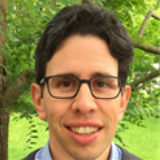
Daniel Lagassé conducts research and CMC review as a Biologist in the Division of Plasma Protein Therapeutics within the Center of Biologics Evaluation and Research at the U.S. Food and Drug Administration. Dr. Lagassé received his PhD in Molecular Microbiology and Immunology from Johns Hopkins Bloomberg School of Public Health.
David Lansky, PhD, President, Precision Bioassay, Inc.

David has been practicing statistics on bioassays (and other non-clinical applications in Pharma) for 35 years. This includes Searle/Monsanto/Pharmacia (10 years) and as the owner of Precision Bioassay, Inc. (since 2002). Most of his bioassay experience involves helping teams improve and validate cell-based bioassays. His experience includes some early (late 1990’s) success as part of a team that used lab automation for a series of cell-based bioassays. He has been and is still an active participant in the work to revise the USP bioassay chapters. His education includes a year of Electrical and Computer Engineering (University of Michigan), a BS in Botany (San Francisco State), an MS in Entomology (Cornell) and finally both an MS and Ph.D. in Biometry (both Cornell).
Yinyin Li, PhD, Principal Scientist, Biochemical & Cellular Pharmacology, Genentech, Inc.

My name is Yinyin Li, Principal Scientist from Genentech, Department of Biochemical and Cellular Pharmacology. I gained my PhD from Texas A&M University and pursued my postdoc training at Stanford University, specializing in immunology and biology. Currently, my work focuses on large molecule drug discovery and immunogenicity risk assessment for biotherapeutics.
Linlin Luo, PhD, Senior Director, Merck

Linlin Luo has worked in the Pharmaceutical Industry for about 15 years, focusing in the area of regulated bioanalytical testing of biologic therapeutics. She has been contributing to pharmacokinetic (PK), immunogenicity (IMG), and neutralizing antibody (NAb) assay development and validation, in support of numerous preclinical and clinical studies for many critical programs, such as Winrevair, Opdivo and Yervoy. Linlin is currently a Sr. Director in the Regulated Bioanalytical Group of Merck, leading a team of scientists responsible for developing bioanalytical assays to support Merck's pipeline.
Dawn Maier, PhD, Cell and Gene Therapy CMC, AD Preclinical Technical Advisor, DGMAIER Consulting

I received my MSc degree in Biology in 2002. and have >26 years of research laboratory and GMP experience in multiple scientific disciplines, including ~20 years in the field of cell and gene therapy. My interests have focused on translational medicine and developing manufacturing processes for early Phase I/II clinical trials using novel therapies via ex vivo expansion of allogeneic or autologous gene modified cells. I have extensive experience working with primary HSCs, T cells, monocytes, and dendritic cells for the treatment of multiple rare diseases, HIV, and cancers. I have grown with the field from a bench scientist to VP of process development and emerging technologies. I have worked at UPENN CVPF, bluebird bio, Unum therapeutics, and most recently Elevate bio. In addition, I have had the honor of working on the following commercial products: Kymriah, Abecma, Skysona, and Zynteglo.
Laurent P. Malherbe, PhD, Executive Director, Eli Lilly and Company

Dr. Laurent Malherbe is currently an Executive Director in the Toxicology department at Eli Lilly. He received his Ph.D. in Immunology from the University of Nice-Sophia Antipolis (France), did his postdoctoral training at the Scripps Research Institute (La Jolla, CA), and worked as an Associate Investigator at the Blood Research Institute (Milwaukee, WI) where his work focused on understanding the cellular and molecular mechanisms regulating antigen-specific CD4 T cell responses. At Lilly, he leads a laboratory responsible for the development of assays to support the preclinical immuno-safety assessment of Lilly’s biotherapeutic products. He has authored over 30 scientific publications and is a member of a multifunctional team responsible for the preclinical immunogenicity risk assessment at Eli Lilly. He is an active member of AAPS and past chair of the Immunogenicity Risk Assessment and Mitigation Working Group within the Therapeutic Product Immunogenicity Focus AAPS Community.
Arkadi Manukyan, PhD, Senior Scientist, Bioassay Development, Sanofi
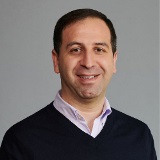
Arkadi Manukyan is a multifaceted scientist with 15 years of experience in designing and performing cell-based bioassays, molecular cloning, protein expression, and purification, various immunoassays, CRISPR gene editing, NGS et. al. In 2010, Arkadi completed his Ph.D. work at Texas Tech University Health Sciences Center. In 2011, he was awarded an NIH training grant to continue his research as a postdoctoral fellow at the University of Virginia. He published 13 research articles and book chapters in peer-reviewed scientific journals. In 2019, Arkadi joined the Bioanalytic team in Sanofi as a Bioassay Development Scientist. Arkadi is involved in developing, qualifying, and validating functional potency assays for cell and gene therapy products.
Yan Mao, PhD, Senior Principal Scientist, Boehringer Ingelheim Pharmaceuticals
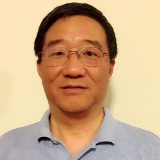
Dr. Yan Mao is currently a Senior Principal Scientist at Bioanalytical Sciences, DMPK, Boehringer Ingelheim Pharmaceuticals, Inc., US, leading a team of scientists providing bioanalytical support for biotherapeutic drug development. He has more than 20 years of experience in regulated bioanalysis and formerly held positions at Bristol Myers Squibb, Pacific Northwest National Laboratory, and National Cancer Institute/National Institutes of Health. Dr. Mao received his BA, MS, and Ph.D. in Chemistry from Nanjing University, China.
Ronit Mazor, PhD, Principal Investigator, CBER, FDA
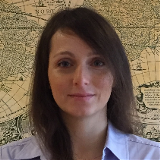
Ronit Mazor did her undergraduate studies in Tel Aviv University in Israel. She performed her PhD in the NIH’s International Graduate Partnership Program, in collaboration with Tel Aviv University. Ronit continued her Post doctoral training in the national cancel institute working on the immunogenicity of recombinant immunotoxins for cancer therapy with Ira Pastan. She then joined the antibody discovery and protein engineering in Medimmune/AstraZeneca in Gaithersburg where she established their cellular and in silico pre-clinical immunogenicity prediction platform. In 2019, Ronit joined the Gene Transfer and Immunogenicity Branch in the FDA as a principal investigator. She is leading a research group studying the interaction between the immune system and gene therapy viral vectors.
Jim McNally, PhD, CSO, BioAgilytix

Dr. McNally has an extensive background in bioanalytical assay development and program leadership spanning nearly 20 years working in the pharmaceutical and biotechnology industry. Prior to joining BioAgilytix, Dr. McNally was Executive Director at CRISPR Therapeutics, where he lead a team of scientists to develop a portfolio of assays to support development of gene-based therapeutic candidates throughout their lifecycle. He has also previously held roles at Genzyme, Pfizer, EMD Serono, and Shire which have given him broad experience in the development of large molecule, gene therapy, and cell therapy biotherapeutics. Dr. McNally is a recognized thought leader in the development and application of bioanalytical methods used in regulatory submissions and is specifically skilled in progression of biotherapeutics from research through clinical development. He has a special interest in the immunogenicity of biotherapeutics and leads an industry-wide working group to address this issue. A key part of his role at BioAgilytix is advising on emerging scientific developments and providing scientific and regulatory guidance. Dr. McNally obtained his B.S. in Biology from Mississippi State University, his Ph.D. Viral Immunology from Louisiana State University School of Medicine in Shreveport, and his Post-Doc in Viral Immunology from University of Massachusetts Medical School.
Diana Montgomery, PhD, Principal Scientist, Pharmacokinetics, Merck & Co., Inc.
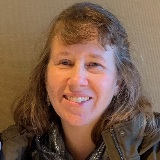
Dr. Montgomery is a Principal Scientist in the Regulated Bioanalytical PK and ADA group at Merck in West Point, PA. She obtained a B.S in biochemistry from the University of Utah and a Ph.D. from Johns Hopkins University in biophysics. At Merck, she has supported the analysis of PK/metabolism aspects of biological therapeutics in development and clinical immunogenicity risk assessment and reporting.
Paul Moore, PhD, CSO, Zymeworks

Over 20 years of experience working in biotech, coordinating efforts focused on the discovery and development of novel biologic-based therapies. I began my biotechnology career at Human Genome Sciences, where directed genomic-based target discovery programs and the preclinical development of various protein and mAb-based therapeutics for the treatment of cancer, metabolic, and autoimmune diseases. Notably, these efforts led to the discovery of BLyS as a B-cell survival factor providing the basis for the development of Benlysta for the treatment for lupus. At MacroGenics, leads a research group dedicated to the discovery, preclinical development, and clinical translational biology of antibody-based therapeutics including Fc-optimized mAbs and bispecifics for cancer or autoimmune disease through harnessing of the host immune system. Obtained PhD from University of Glasgow and performed post-doctoral work at the Roche Institute of Molecular Biology; co-authored over 70 peer-reviewed manuscripts and 40 issued US patents.
Kannan Natarajan, PhD, Staff Scientist, NIAID, NIH
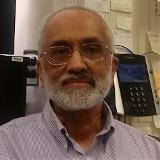
Dr Kannan Natarajan obtained his Ph.D. in Immunology from India and trained as a postdoctoral fellow at the Biozentrum, University of Basel, Switzerland, and at the University of Rochester, New York. Following a 2-year stint on the faculty of the Forsyth Research Institute in Boston, he joined the Laboratory of Immunology at the NIAID/NIH. Kannan’s research interests are the structural basis of ligand recognition by receptors of the immune system, especially receptors found on T cells and natural killer cells, and the molecular aspects of antigen presentation.
Morten Nielsen, Professor, PhD, Department of Health Technology, Technical University of Denmark

Dr. Nielsen holds a shared position as Professor of Immunoinformatics and Machine Learning at the Department of Health Technology, Technical University of Denmark, and the Universidad Nacional de San Martin, Argentina. He graduated with a Masters in Physics from the University of Copenhagen, and obtained his Ph.D. (also in Physics) from the McGill University, Canada. The core of Dr. Nielsen’s research deals with the development of novel and advanced data-driven prediction methods for pattern recognition in biological systems. He is a pioneer in the field of immunoinformatics and a key inventor of several state-of-the-art methods for T and B cell epitope discovery currently used worldwide. He has published more than 200 articles, books, and book chapters within the fields of immunology, immunoinformatics, computational biology, data mining, and machine learning.
Ravish B. Patel, PhD, Senior Manager, Pharmacology, Sun Pharma Advanced Research Center

Dr. Ravish Patel is currently a Senior Manager I at Sun Pharmaceuticals Ltd. in the Pharmacology and Bioassay Group. Before joining Sun Pharmaceuticals in 2021, he served at Wockhardt Biotech, Cipla, Cadial, and Intas Biotech in different capacities. Ravish has about 14 years of experience in the development of cell-based (functional) and Binding assays (ELISA assays) for Bio-therapeutics. In the department, Ravish has been supervising several interns as well as master students and is involved in both transfer of assays from Research to CMC and from CMC to QC labs prior to launch. He received his PhD in biotechnology from Niram University and a Master’s degree in Microbiology from the University of Mysore. Ravish has been actively involved in industry discussions focusing on functional characterization of Bio-therapeutics and Bio-similarity assessment to support various modalities, including mAbs, fusion Proteins, and Immune Checkpoint Inhibitors (ICIs). Furthermore, his background in biological assay development and validation helped to provide him to best lead a key team of scientists within the global discovery services group at Sun-Pharma.
Sofie Pattijn, Founder & CTO, ImmunXperts, a Q2 Solutions Company

Sofie Pattijn, CTO and founder of ImmunXperts, has over 20 years of experience in the field of immunogenicity assessment (vaccines and biotherapeutics) and in vitro assay development with a focus on functional assays for immunogenicity, immune oncology, and cell and gene therapy products. She has extensive hands-on lab experience and has managed and coached several in vitro teams over the last decade. From 2008 until 2013, she was Head of the in vitro Immunogenicity group at AlgoNomics (Ghent, Belgium) and Lonza Applied Protein Services (Cambridge, UK). Prior to that, she worked at Innogenetics in Belgium for over 15 years.
Ryan Peckner, PhD, Director, Machine Learning, Seismic Therapeutic
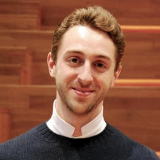
Ryan Peckner has been the head of machine learning at Seismic Therapeutic since early 2022, where he leads a team focused on applying ML to develop next-generation classes of non-immunogenic protein therapeutics. He earned his PhD in theoretical mathematics at Princeton University in 2015 and, after deciding to transition to an applied field, completed his postdoctoral training at the Broad Institute with an emphasis on the intersection of proteomics, genomics, and machine learning. Since entering biotech in early 2019, he has focused on developing and applying new machine learning techniques to structural biology, immunology, and drug development, beginning with models to probe TCR-pMHC interactions at Repertoire Immune Medicines and continuing with his work at Seismic.
Jack A. Ragheb, MD, PhD, Senior Vice President, Translational Sciences and Medicine, NexImmune
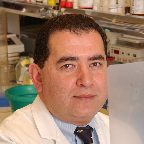
Dr. Ragheb is SVP for Translational Sciences & Medicine at NexImmune, a clinical stage company based in Gaithersburg, MD. He received his MD and PhD degrees from the Johns Hopkins University and is a Diplomate of the American Board of Allergy & Immunology. Formerly, he was the Senior Medical Fellow for Immunology in Global Patient Safety and Co-Chair of the Immunogenicity/Immunosafety Working Group at Eli Lilly & Co. Before joining industry, he was a Senior Clinical Investigator at NIH where he conducted clinical and basic research on immune tolerance, and a Chief Medical Research Officer in the Office of Biological Products at the FDA, where his research group established the BLT humanized mouse model there in an effort to predict the immunogenicity of biotherapeutics. He has published in the areas of immunogenicity, immune tolerance, IL-2R signaling, CD28 and CD40L regulation, retrovirology, and gene therapy.
Krupa Ramani, Manager, Johnson & Johnson

Krupa Ramani is a Manager in the department of Bioanalytical Discovery and Development Sciences at Johnson and Johnson (J&J). Krupa has been in the field of immunogenicity for over 20 years. She joined J&J in 2015 as an Associate Scientist and assumed progressively greater responsibilities supporting biologics therapeutics from preclinical through post-market studies. She oversees the immunogenicity validation and laboratory bioanalysis teams, managing a group of five scientists. Prior to joining J&J, Krupa worked at Strategic Diagnostics, Inc (SDIX). She earned a B.S. degree from M.G Science Institute and Medical Tech degree from The Gujarat Cancer & Research Institute in India.
Bonnie Rup, PhD, Biotechnology Consultant, Bonnie Rup Consulting

Bonita Rup is a biopharmaceutical development consultant, providing expert advice on bioanalysis, immunogenicity risk assessment, and related regulatory strategy aspects of biopharmaceutical development. Previously she was Research Fellow and lead for the Immunogenicity Discipline at Pfizer, Assistant Vice President of Protein Bioanalytics in Wyeth, and held various positions directing development and application of immuno-ligand binding assay technologies for PK, immunogenicity and protein impurity analysis, and other aspects of biopharmaceutical development. During her career, she has been involved in multiple regulatory filings during preclinical, clinical development and marketing approval of biopharmaceutical products. She has been a member of AAPS, EIP, European IMI ABIRISK consortium, and Biosafe; with these organizations, she has been a co-author for multiple publications related to monitoring immunogenicity and bioanalysis of therapeutic proteins. Bonnie received her B.S. from University of Massachusetts, Amherst, Ph.D. from University of Texas, Austin, and conducted postdoctoral research at Duke University and University of Rochester, NY.
Nancy Sajjadi, Independent Quality Consultant, Sajjadi Consulting

Nancy Sajjadi, M.Sc. is Founder and Principal Consultant of Sajjadi Consulting. She has over 30 years of experience in biopharmaceutical product development. She began her career as a bench scientist doing malaria vaccine research then joined a start-up company developing cell and gene-using therapies for infectious disease, cancer, and cell therapy applications. Her responsibilities included research, assay development, and quality control. In 2000, she left her position as Director of QC at Chiron Technologies Center for Gene Therapy to start her own consulting business. For over 20 years, Ms. Sajjadi has provided services to biopharmaceutical companies, contract laboratories, non-profit organizations, universities, and US government agencies. She has assisted clients in the development, implementation, and improvement of quality programs for a range of cutting-edge products and provides technical expertise in assay development, qualification, and validation. Ms. Sajjadi has authored several articles pertaining to bioassays and viral gene therapy and has served on 5 advisory panels for the United States Pharmacopeia (USP). She enjoys teaching introductory courses in bioassay design, development, and validation for non-statisticians. Her company has recently expanded services to include leadership development and executive coaching to guide organizations toward sustaining a culture of quality.
Sumona Sarkar, PhD, Biomedical Engineer, Biosystems and Biomaterials Division, Biomaterials Group, National Institute of Standards and Technology

Sumona Sarkar is a Biomedical Engineer at the National Institute of Standards and Technology in Gaithersburg MD. She has been at NIST for 8 years with a focus on cell material interactions for tissue engineering and regenerative medicine, and analytical methods for cell and gene therapy. She serves as a subject matter expert and project leader in ISO TC 276: Biotechnology with particular expertise in cell count, viability, and characterization. Prior to joining NIST Sumona received her Ph.D in biomedical engineering from Drexel University, and her M.S. from Boston University.
Zuben Sauna, PhD, Director, Division of Hemostasis, CBER, FDA
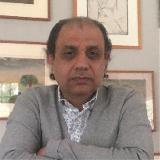
Zuben E. Sauna is a Principal Investigator and also the Director, Division of Hemostasis at the Center for Biologics Evaluation and Research of the US Food and Drug Administration. His research interests lie in understanding the pharmacogenetic basis of the immune response to proteins used in therapeutic interventions as these affect efficacy and safety. His laboratory exploits a combination of computational, in vitro and ex vivo approaches to understand why some individuals and/or sub-populations develop immune responses while others do not. Work from his laboratory has been published in high impact journals such as Nature Biotechnology, Nature Medicine, Science, Science Translational Medicine and Nature Reviews Genetics. He received his Ph.D. from Poona University, India with subsequent training at the National Cancer Institute, Bethesda, USA.
Anurag Sharma, PhD, Gene Therapy Reviewer, CBER, FDA

Anurag Sharma joined Food and Drug Administration (FDA)/CBER/OTP as a gene therapy product reviewer in October 2018 and conducts scientific review of CMC data to assess safety and quality of diverse investigational gene therapy products. He has been Acting Team Lead since August 2022. Anurag earned his bachelor’s degree in veterinary sciences and master’s in animal biotechnology from India before moving to the United States to pursue PhD in Molecular Virology from Purdue University at West Lafayette, IN. His doctoral research primarily focused on the development and characterization of novel adenoviral vectors for gene delivery applications. After his PhD, Anurag worked at Weill Cornell Medicine (WCM) at New York City as a postdoctoral associate and subsequently as an Assistant Professor of Research. At WCM, he continued his research to design innovative strategies to further improve adenoviral vectors and to develop vaccines against some of the pediatric respiratory infections with no approved vaccines.
Han-Yu Shih, PhD, Investigator, NeuroImmune Regulome, National Institutes of Health National Eye Institute
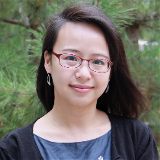
Dr. Shih received her Ph.D. from Duke University and Postdoctoral training at the NIH. Her PhD dissertation studied the role of three-dimensional chromatin looping and the key looping factor, CTCF, in gene regulation during thymocyte development. As a postdoctoral fellow, she investigated lymphocyte regulomes by integrating cutting-edge techniques and computational approaches. She found that the regulomes in innate lymphoid cells were generated early in their development and in this manner differed from adaptive lymphocytes. Dr. Shih is currently a Stadtman Investigator jointly appointed with the National Eye Institute and National Institute of Neurological Disorders and Stroke at NIH. Her research focuses on understanding the regulation of cytokine loci and immune regulomes in health and neurodegenerative diseases in the eye and brain, with an ultimate goal of developing more specific and efficacious therapies.
Robert Siegel, PhD, Associate Vice President, Laboratory for Experimental Medicine, Eli Lilly and Company

Accomplished scientist and mentor with nearly 2 decades of industrial experience developing protein therapeutics who leads a multi-disciplinary laboratory composed of diverse talents and educational backgrounds. Extensive experience in antibody discovery/engineering and proteomics who has worked across all phases of drug development from target identification to registration. Rob received his Ph.D. in Microbiology and Biochemistry from Indiana University Bloomington and postdoctoral training at Los Alamos National Laboratory where he began his antibody engineering career that includes extensive work with both phage and yeast in vitro display systems. He has been with Eli Lilly and Company since 2007 and most recently has collaboratively devised and implemented the large molecule portfolio preclinical immunogenicity risk assessment strategy.
Matthew Stephenson, PhD, Director of Statistics, Quantics Biostatistics

Matthew Stephenson is a Director of Statistics at Quantics Biostatistics where he has been advising clients on the statistical analysis of bioassays since 2019. He completed an undergraduate degree in Biology (2012) and a MSc (2015) and PhD (2019) in Statistics. He was awarded the 2020 Canadian Journal of Statistics Award for his PhD research on leveraging the graphical structure among predictors to improve outcome prediction. Following a stint as Assistant Professor in Statistics at the University of New Brunswick from 2020-2022, he resumed a full-time role at Quantics in 2023.
Lauren F. Stevenson, PhD, CSO & Head, Translational Sciences, Immunologix Labs

Lauren is currently Chief Scientific Officer at Immunologix Laboratories where she also co-founded and leads the Translational Sciences organization. Prior to joining Immunologix in 2019, Lauren accrued 20+ years of drug development experience in small and large biotech and pharma where her teams were responsible for developing bioanalytical and biomarker strategies and execution thereof in support of a diverse portfolio of therapeutics spanning all stages of drug development from late research to post-market. Lauren is a globally recognized thought leader in large molecule bioanalysis and biomarkers who has authored multiple white papers and frequently presents at national and international conferences. In addition to her scientific interests, Lauren is equally passionate about strengths-based people development and fostering a culture of collaboration and interdependence that leads to collective success.
Michael D. Swanson, PhD, Associate Scientific Director, Bioanalytical Discovery & Development Sciences, Johnson and Johnson Innovative Medicine

Michael Swanson is an immunology enthusiast. He received his PhD in Immunology from the University of Michigan. He has been working in the pharmaceutical industry for over 10 years. He currently works at Johnson and Johnson Innovative Medicine part of the Bioanalytical Discovery and Development Sciences Group. His group supports analysis of cellular immune responses to cell therapies, gene therapies, and therapeutic vaccines for pre-clinical and clinical studies. Michael also contributes to immunogenicity risk assessment strategies related to biologics. Michael's goal is to better understand and mitigate immunogenicity related to therapeutics to improve clinical outcomes for patients.
Jiangbo Tang, PhD, Senior Scientist, Bristol Myers Squibb Co.
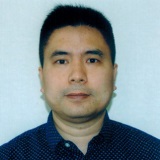
Jiangbo Tang is a Senior Scientist in the Department of Clinical Pharmacology, Pharmacometrics, Disposition & Bioanalysis at Bristol Myers Squibb (BMS). He leads regulated PK and immunogenicity bioanalytical development to support programs in CAR T, ADC, and antibody therapeutics. Prior to joining BMS, for several years he led a team at a CRO and provided regulated bioanalytical support for clinical programs. He also worked as a Staff Scientist in the QC Department at Regeneron, where he automated potency assays in support of stability, and lot release of drug products. Jiangbo received his PhD in Human Genetics from the University of Pittsburgh and completed his postdoc training at the University of Pennsylvania, where his published research in cancer biology and immunology has been widely cited with over 1,500 citations.
Jenny Valentine, PhD, Senior Principal Scientist, Bioanalytical Sciences, Regeneron

Jenny Valentine currently works in the Bioanalytical Strategy Group at Regeneron, where she leads bioanalytical strategy for multiple clinical programs in oncology that utilize both traditional and emerging drug modalities. She has nine years of experience in large molecule bioanalysis, with previous roles in immunogenicity assay development, validation, and sample testing. Jenny earned her Ph.D. in Chemistry from Yale University and is an active participant in several AAPS working groups.
Daniela Verthelyi, MD, PhD, Chief, Laboratory of Immunology, CDER, FDA

Dr. Verthelyi directs a lab focused on understanding innate immunity and inflammation and applying the information to address regulatory problems. Her group develops new methods and models to understand the role of product and process-related impurities on product immunogenicity, as well as animal models to assess the safety and efficacy of innate immune response modulators and other therapeutics to respond to infectious diseases. Dr. Verthelyi trained in medicine at the University of Buenos Aires and then obtained a PhD in Immunology from Virginia Tech in USA. She has authored over 100 peer-reviewed articles, is the inventor in several patents, and has received FDA's, CBER’s, and CDER’s “Excellence in Laboratory Sciences” awards, among other honors. In addition to her position at FDA, she has Chaired the FDA-NIH Immunology Interest Group, the NIH-FDA Cytokine Interest Group, and served on the Advisory Boards for the NIH Human Immunology Group.
Leslie Wagner, Consumer Safety Officer, FDA CBER
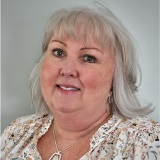
Leslie Wagner is a Consumer Safety Officer in the Division of Bacterial, Parasitic, and Allergenic Products, Office of Vaccines Research and Review, CBER, FDA. She is involved in regulatory project management, is the team lead for all vaccine assay reviews (CMC/clinical) for the division, and actively engages in research activities that support our regulatory mission. She is involved in Center-level policy matters that affect CMC, ICH, and Compliance guidance and is an active participant in several Working Groups. Ms. Wagner earned her BSc. in Biology from Shepherd College. She has 35+ years of experience in the pharmaceutical, biotech, and clinical sectors.
Yow-Ming Wang, PhD, Associate Director for Biosimilars and Therapeutic Biologics, CDER, FDA
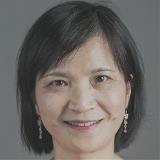
Dr. Yow-Ming Wang is currently the Associate Director for Biosimilars and Therapeutic Biologics as well as Director of Therapeutic Biologics Program in the Office of Clinical Pharmacology at the FDA. From 2011 to September 2017, Dr. Wang served as the team leader of Biologics Team in Division of Clinical Pharmacology III; her team was responsible for reviewing submissions of biological products in three clinical divisions. Prior to joining the FDA, she worked in the pharmaceutical industry with experience in small molecules and large molecules. From 2004 to 2011, she worked at Amgen where she supported multiple biologic products in clinical development, in registration phase, and in post-marketing phase. Before Amgen, she supported small molecule drug discovery and development for 11 years at Vertex Pharmaceuticals and at Parke-Davis Pharmaceutical Research. She received her PhD degree from The Ohio State University College of Pharmacy with a research focus on Pharmacokinetics and Biopharmaceutics.
Weifeng Xu, PhD, Director, Bioanalytical, Merck

Weifeng has been in the field of immunogenicity for biologics for about 10 years. He had developed cell-based neutralization Ab assays for multiple key product at BMS including Opdivo and Yervoy. He is an active member in AAPS NAb work group as well as EBA NAb team; he is also co-leading the NAb assay drug tolerance subteam at AAPS. After join Merck at the end of 2018, Weifeng is now leading Cell Assay group within PPDM Regulated Immunogenicity to develop neutralizing assays for both biologics and vaccines.
James Zanghi, PhD, Senior Principal Scientist, BioAnalytical Sciences, Genentech, Inc.

Dr. James (Jim) Zanghi, PhD, is a Senior Principal Scientist in the BioAnalytical Sciences department at Genentech. Dr. Zanghi earned his PhD at Northwestern University and completed a postdoc appointment at the ETH in Zurich. Dr. Zanghi has specialized in bioanalytical development for the past 23 years with a focus on immunogenicity assessment and regulatory strategy. Prior to joining Genentech in 2020, he led the large molecule bioanalytical organizations at three San Francisco Bay Area biotech companies, most recently serving as Senior Director of Nonclinical Development at Versartis, supporting numerous clinical-stage drugs.
Tom Zhang, Chief Scientist, Large Molecule Bioanalysis, Early Phase, www.worldwide.com

Tom Zhang, PhD. Chief Scientific Officer, Large Molecule Bioanalysis Our large molecule bioanalytical lab is headed by Dr. Tom Zhang, industry recognized large molecule bioanalysis expert. Dr. Zhang is responsible for evaluating and recommending analytical platforms in support of quantitative large molecule work; actively promoting technical development programs to keep Worldwide at the forefront of technology in support of large molecule bioanalysis; and maintaining state-of-the-art knowledge pertaining to large molecule bioanalytical methodologies
An Zhao, PhD, Senior Principal Scientist, Bioanalytical Sciences, Regeneron Pharmaceuticals, Inc.
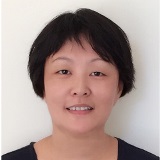
An Zhao is a Senior Principal Scientist in the Department of Bioanalytical Sciences at Regeneron. In her role as an immunogenicity subject matter expert, she contributes to developing bioanalytical strategies for protein therapeutics and other novel modalities. She also oversees clinical bioanalysis related to pharmacokinetics, immunogenicity, and biomarker evaluation. An received her PhD in Biochemistry from the Institute of Basic Medical Sciences, China, and completed a postdoctoral fellowship in molecular biology at the University of Edinburgh. She has over a decade of experience in the pharmaceutical industry, having worked in various stages of drug development, from early target discovery through clinical development.
スポンサー更新
アジェンダ・講演者更新
講演者・スポンサー更新
イベント情報更新
CONFERENCE PROGRAMS
